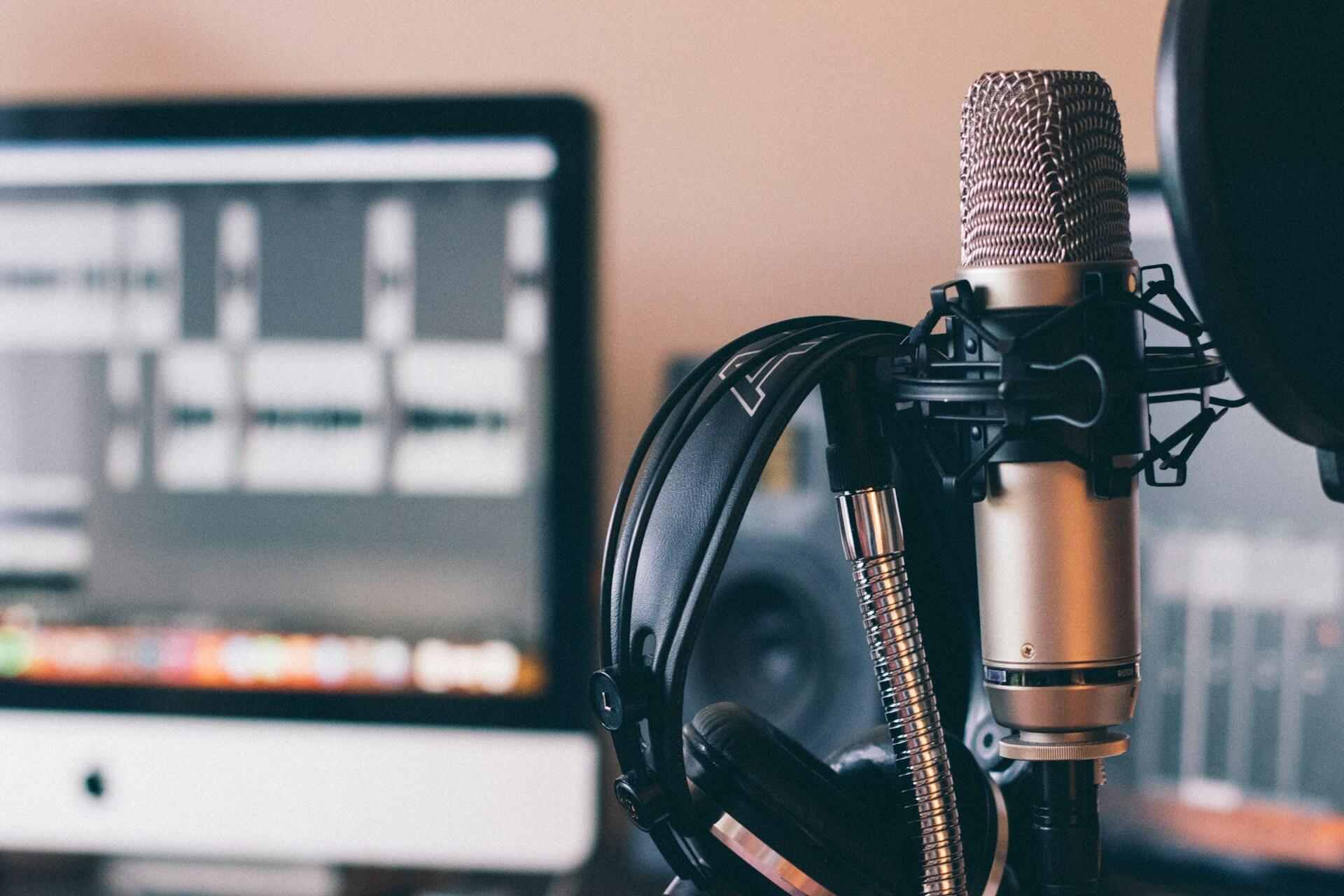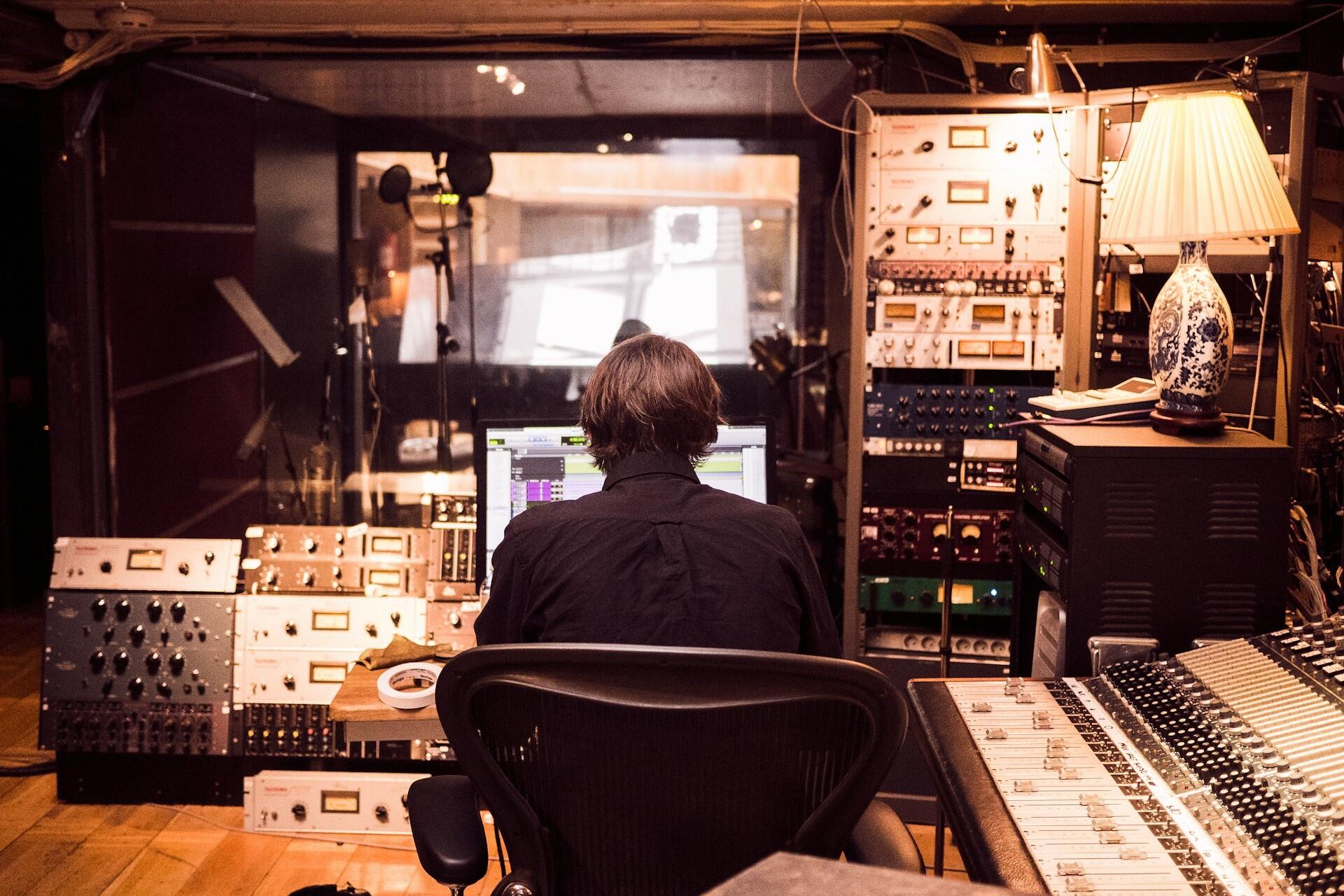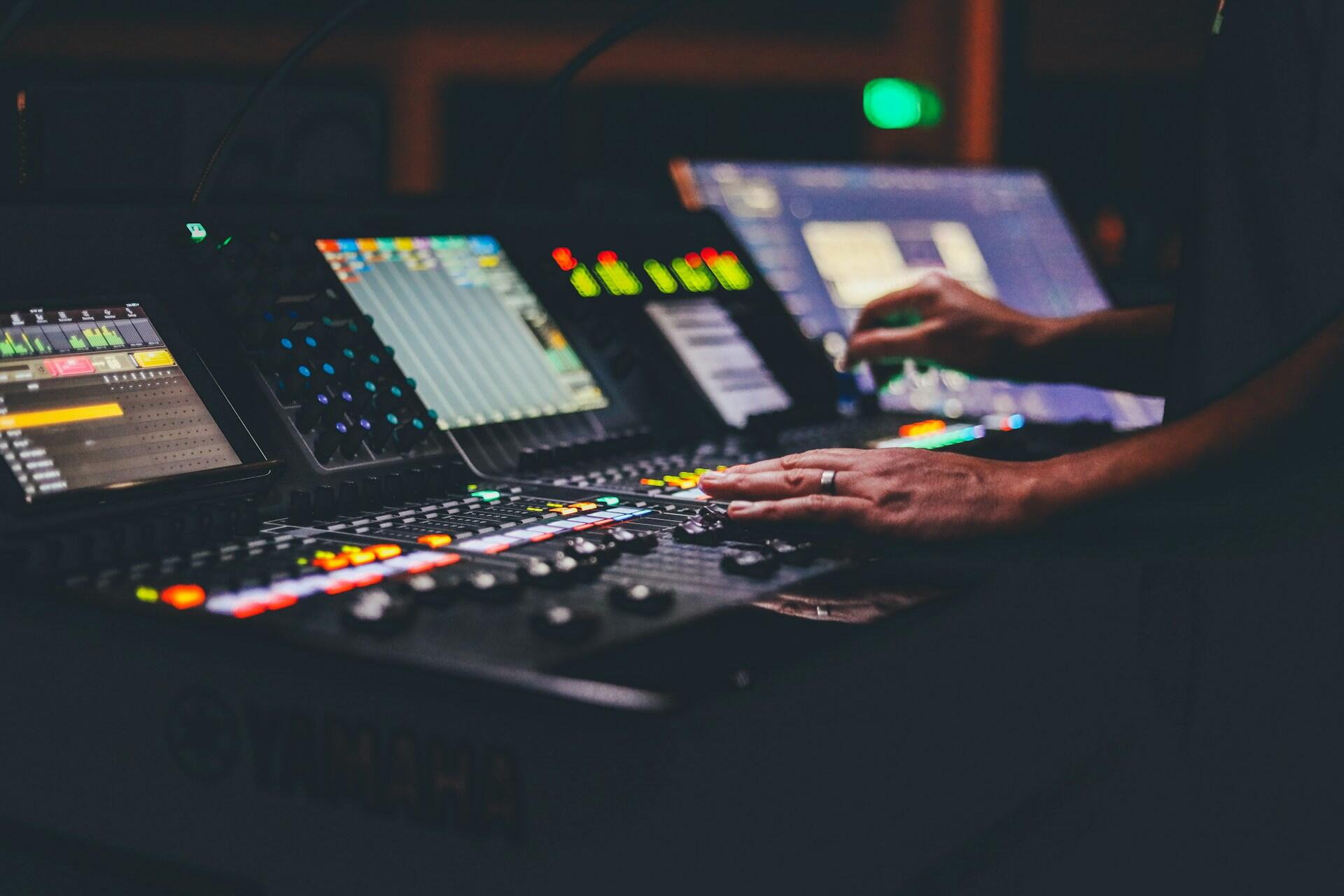From studio interns and freelance beatmakers to world-class producers earning royalties, the salaries music producers earn vary widely depending on experience, location, and skill set. In the UK, a music producer's salary can range from around £18,000–£25,000 at entry level to £30,000–£60,000 for mid-career producers, with top professionals earning £70,000+ (excluding royalties). Freelancers often charge £150–£400 per day, depending on experience. Here, we'll break down the factors that music producers earn.
| Type of Producer | Typical Income (Annual) | Day Rate | Stability | Notes |
|---|---|---|---|---|
| Entry-Level (Employed) | £18,000–£25,000 | N/A | High | Studio runners, junior engineers |
| Mid-Level (Employed) | £28,000–£45,000 | N/A | High | Assistants, in-house producers |
| Freelance Producer | Varies | £120–£600+ | Low–Medium | Higher earning potential, variable workload |
| Senior/Professional | £45,000–£70,000+ | £300–£600+ | Medium | Established credits or major clients |
| Royalty-Based Producers | Highly variable | N/A | Low | Depends on track performance |

Understanding Music Producer Salary Levels
Generally, a music producer's salary varies more than in most creative careers, since there are so many different things they can do. Some producers work full-time in studios or media companies and, therefore, have very stable pay. Others earn money through freelance gigs, collaborations, and royalties. You must keep these factors in mind to set more realistic salary expectations.

What Affects a Music Producer’s Income?
Creative skill, technical ability, and business awareness all affect a music producer's earning potential. By diversifying their services and building a strong network, they can earn more quickly. Those with specialist skills can also boost their earnings. Some of the key factors that influence music producer salaries include:
Freelance vs Employed Producer Pay
One of the key differentiators in music producers' earnings is simply whether they're paid by a fixed employer or work in a freelance capacity. Freelancers have a broader range of earning potential: they can earn less than employed producers when work is quiet, but with many good-paying clients, they can easily earn more than they do, too. Here's how the two compare:
Freelance Producers
- Charge project, day, or session rates
- Can earn more through multiple clients
- Income varies depending on workload
- Often supplement earnings with mixing, mastering, or sound design
Employed producers
- Earn a consistent annual salary
- Usually have set working hours
- Ideal for those preferring stability
- Often start in junior or assistant roles
How Location Impacts Earnings
Location is another key differentiator of music producers' salaries in the UK. Cities with larger creative industries, like London, Manchester, and Bristol, tend to pay higher wages because there's greater demand from studios, artists, and media companies. However, competition is also stronger, so securing work here at first may be more challenging. You might want to consider an apprenticeship in music production first.
Entry-Level Music Producer Salaries
Understandably, entry-level salaries are the lowest in music production, but the starting rung varies by role. As mentioned above, your pay will depend on whether you're working in a studio environment, as a freelancer, or assisting producers on projects. Beginners can still earn a moderate income from their technical skills while building a portfolio and gaining industry contacts.

Typical Starting Salary in the UK
Entry-level producers in the UK can expect to earn between £18,000 and £25,000 per year as a full-time studio employee. This is the typical range for assistant engineers, studio runners, and junior content producers in small- to mid-size studios. In larger cities like London, the entry-level wages are slightly higher.
What Entry-Level Work Looks Like
Beginner-level production work isn't always easy. It can involve long hours, varied tasks, and a steep learning curve. This is when you'll develop essential technical skills and familiarise yourself with professional workflows and session management. Even if you have already completed a reputable music production degree, you'll likely start here. Entry-level responsibilities may include:
How Assistants, Runners, and Juniors Earn
Entry-level earnings are often bolstered by freelance and other small paid projects. As you look to build connections, you may work side gigs in addition to a paid studio role. Common income sources for beginners include:

Mid-Level and Professional Music Producer Salaries
With experience, credits, and industry connections, earning potential can increase significantly based on where you are in your music production career. Mid-level producers are those who've built a steady client base, developed a recognised style, or secured repeat work. Those at the top of the field will earn high day rates, project fees, or royalties, primarily if they work with established artists, media companies, or major labels.

Salary Growth After 3–7 Years
With around 3 to 7 years of experience, entry-level producers become mid-level producers. At this stage, they'll take on greater creative responsibility and begin specialising in mixing, mastering, electronic production, film sound, or specific genres. Typical mid-level earnings:
Experienced Producer Salary Ranges
Producers with a strong portfolio and client list typically command higher salaries. They're hired for their creative vision and technical skills. They can work independently, run their own studios, or collaborate with high-profile artists. High-level producer income ranges:
The Realities of Royalty Income
Royalties are a good way for producers to earn, but they're not guaranteed income and take time to accumulate. Many producers negotiate "point" (a percentage of a track's revenue) or small royalty splits when working with commercial artists. Royalties might be low at first, but they can become substantial when tracks perform well on streaming services.
Music producer incomes vary widely based on experience, location, and specialisation. Entry-level salaries begin around £18k, while mid-level producers often earn £30k–£45k. Experienced freelancers can make £300–£600+ per day, and royalties can significantly boost long-term earnings when projects succeed.
Freelance Music Producer Salary Expectations
It's harder to pin down a freelance music producer's salary since it's one of the more flexible paths. Freelancers set their own rates and work with different clients and income streams. Freelance income can be inconsistent, and while experienced producers will likely earn more than their salaried counterparts, those starting out might earn less. They can boost their earnings by specialising in high-demand services like mixing, mastering, or electronic production.

Project-Based Rates
Freeland producers tend to charge per project. When working with independent artists, small labels, or content creators, this is a smart approach. These feelings will depend mainly on the producer's experience, style, and the scope of the work. Typical project-based rates:
Day Rates and Session Rates
It's common for studios to charge daily or session-based rates. This is commonplace for producers who also engineer, mix, or manage recording sessions. Day rates tend to scale with experience. Typical freelance producer day rates:
How Freelancers Build Multiple Income Streams
The key to successful freelancing is to secure a mix of income sources. This can involve a mix of production, engineering, digital content creation, teaching, and royalty-based revenue. Diversifying helps stabilise a producer's earnings across busy and slow periods. Common freelance income streams include:
How to Increase Your Earnings as a Music Producer
You can boost your earnings as a music producer in several ways. Generally, they do it by building industry relationships, developing creative skills, expanding the services they offer, and becoming a better music producer. Grow your portfolio, specialise in in-demand skills, and create multiple income streams. Small improvements like upgrading your workflow and improving client communication can help.
Building a Strong Portfolio
A strong portfolio is a powerful tool for music producers. Clients will want to hear your sound, see your strengths, and understand your creative approach. A high-quality portfolio can help you convey that to them. Ways to strengthen your portfolio:
Networking and Repeat Clients
You'll get better-paid work with strong industry relationships. Producers can find new clients through recommendations, online visibility, and relationships built at events and studio sessions.
Expanding Your Skillset (Mixing, Mastering, Sound Design)
By offering multiple services, you can charge more and work with a broader range of clients. Developing related skills can help you land higher-paying projects. High-value skills that increase earning potential include:
Creating Passive Income (Samples, Packs, Courses)
Music producers can also boost their earning potential with passive income. By creating digital products or educational resources, they can generate ongoing sales. Common passive income sources for producers include:
Key Takeaways
- Build a solid portfolio that shows your best work
- Learn additional skills like mixing, mastering, or sound design
- Network consistently to secure higher-value, repeat clients
- Create passive income streams through sample packs, presets, courses, or online content
- Diversify your revenue so slow months don’t impact your income heavily
Summarise with AI:















